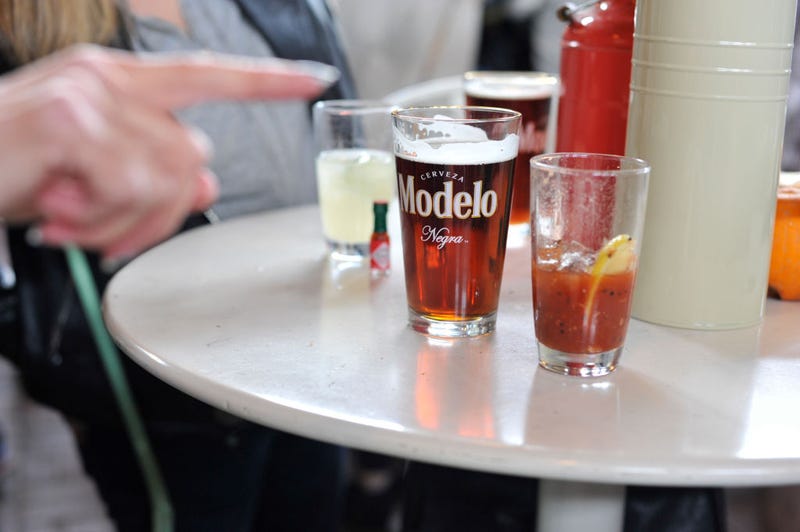
We get it - when you’re on your third IPA, you’re not thinking about where the red cup is going to end up.
But in the cold light of the next morning, it’s too late to worry about if you threw that cup into the right recycling can. You might want to just start thinking about your next night out, and the effect the drinks themselves have on our environment.
Luckily, and thankfully, liquor companies have actually been some of the best for donating to and raising awareness of environmental issues. And beyond fundraising and recycling details on their labels, many are going that extra step to adopt eco-friendly practices in manufacturing their drinks to promote sustainability.
Stocking up on drinks? Order from Drizly and snag $5 off purchases of $20 or more using promo code: AUDACY5. (21+ only. New customers only. Valid in CA, KY, TN, AZ, CO, DC, FL, IA, IL, LA, MD, NY, OR, RI, WY. Void where prohibited. Audacy may earn commission for products purchased via affiliate links.)
If you’ve ever gone on a mill tour, you’ll soon find out beer and other alcohol distillers are some of the most passionate and involved of any profession, and they are well aware that their success is directly related to a healthy, growing planet.
Of course, it’s up to you to decide how far you want to go in research and price to help attain sustainability within your partying. And if that’s important to you, here’s a list of where your favorite libation lands in the earth friendly department.
Wine
The deepest carbon footprint of wine comes not from production, but shipping. You can minimize that by consuming locally produced or organic wines.
One brand you might want to check out is Avaline, Cameron Diaz’ new vegan-friendly wine company.
Whiskey
The raw ingredients of this golden favorite come from grains like wheat, rye, corn, and barley, which means they involve a hefty agricultural process and generate a lot of acidic waste. More dedicated whiskey manufacturers are working hard to reduce that waste, or convert it into biogas energy.
Maker’s Mark has been a pioneer in the innovative practice of turning waste into biogas energy. And speaking of mill tours, theirs is amazing!
Vodka
Historically culled from potatoes, vodka is now made from a number of different grains. But the fact remains that, to attain it’s particular flavor and texture, it remains the hooch that needs more water and energy than any other. Similar to gin, vodka is distilled down to 95% ethanol, so many ethanol plants also make vodka and then dilute it to only 40%.
A particularly eco-aware brand is Square One Vodka, who “uses organic ingredients and gets one-third of the electricity from a local wind farm.”
Rum
Rum is a famously great mixer for beachside concoctions. Too bad it’s not too good for the land around that beach.
Rum is derived from sugar cane, and the raising of that crop has been associated with all sorts of eco-pitfalls like soil erosion and pollution, water contamination, loss of biodiversity, land damage by slash-and-burn harvesting.
The fibrous remains of the distillation process can pollute waterways and produce greenhouse gases. Many gin producers have taken up treating the water waste so as not to impact the environment as much.
That said, there are of course organic rum companies that aim to reduce their footprint. DonQ Rum is one, produced by a distiller from Puerto Rico.
Beer
And so we return to that red cup.
Yup, we all love the ease, price, and fun of beer. But first off, sustainability-wise, there are those cups, bottles, and cans that get lazily tossed. Then, an environmental analysis done by New Belgium Brewing Company in 2008 showed that one-third of beer’s greenhouse gases come from its refrigeration.
Glass container production is at 22%, and one might think that would be the more eco-friendly choice. But, even though aluminum production has its environmental impact, it is still a better choice than bottles in terms of carbon emissions. So don’t feel bad about grabbing cans over bottles -- beer can recycling is easier. Just make sure you toss it in the right recycling bin.
While it might take some searching, look for New Belgium beer from Colorado. They produce highly efficient kettles, and their operations are powered by renewable energy. Buy locally-produced if possible to cut down on distribution emissions. But if your town is a little wanting for the more sustainable, independent breweries, check the websites of your favorite national brands and look into their activity on the carbon footprint front.
Then sit back, take a sip, and have a clean, fun summer!
For more ideas on how you can save the planet, visit 1Thing.
LISTEN on the Audacy App
Sign Up and Follow Audacy
Facebook | Twitter | Instagram